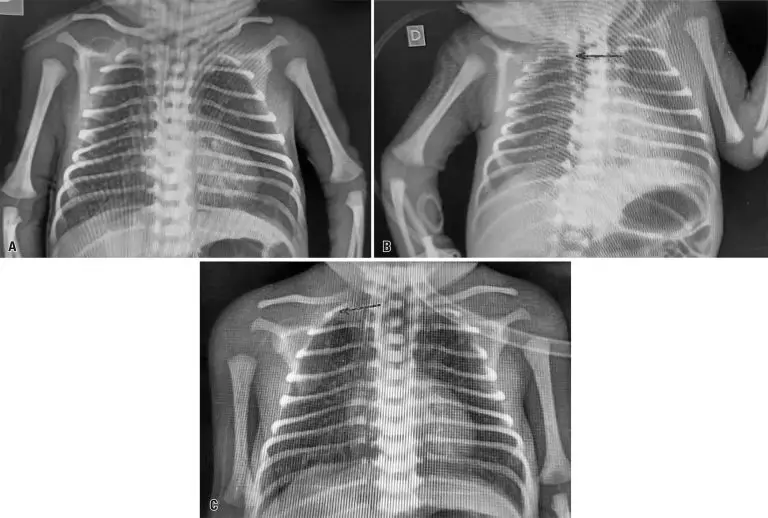02/jul/2025
Cardiac tamponade in a newborn caused by a peripherally inserted central catheter: case report
DOI: 10.31744/einstein_journal/2025RC0634
ABSTRACT This article describes the occurrence of cardiac tamponade in a premature newborn after the use of a peripherally inserted central catheter at a university hospital in Brazil. Pericardiocentesis was performed, the catheter was repositioned using radiography, and minimal residual pericardial effusion was confirmed using echocardiography. The patient showed good progress and was discharged from the hospital on day 47 of life without any complications related to the event. Therefore, although adverse events may occur following the insertion of peripherally […]
Palavras-chave: Tamponamento cardíaco; Cateteres; Troca materno-fetal; Prematuro; Unidades de terapia intensiva; X-rays
29/mar/2022
Inadequate positioning of central venous catheters inserted at intensive care units
einstein (São Paulo). 29/mar/2022;20:eAO6497.
Ver Artigo29/mar/2022
Inadequate positioning of central venous catheters inserted at intensive care units
DOI: 10.31744/einstein_journal/2022AO6497
ABSTRACT Objective To evaluate the positioning of the distal tip of central venous catheters and the factors that contributed to inadequate positioning in patients admitted to intensive care. Methods This is a cross-sectional study, with a sample of 246 medical records of patients admitted to intensive care units. A catheter position analysis form was used as an instrument for data collection. Results It was seen that 86.2% of catheters used in intensive care were centrally inserted in the internal jugular […]
Palavras-chave: Cateteres; Cateteres venosos centrais; Patient positioning; Radiography, thoracic
01/jul/2011
Tamponamento cardíaco causado por cateter central de inserção periférica em recém-nascido
DOI: 10.1590/S1679-45082011RC1885
RESUMO Este artigo relata um evento adverso de tamponamento cardíaco associado a cateter central de inserção periférica em recém-nascido prematuro. A abordagem foi punção pericárdica que reverteu o quadro de parada cardiorrespiratória. O recém-nascido apresentou boa evolução clínica e recebeu alta hospitalar sem complicações associadas ao evento.
Palavras-chave: Cateteres; Prematuro; Recém-nascido; Relatos de casos; Tamponamento cardíaco


